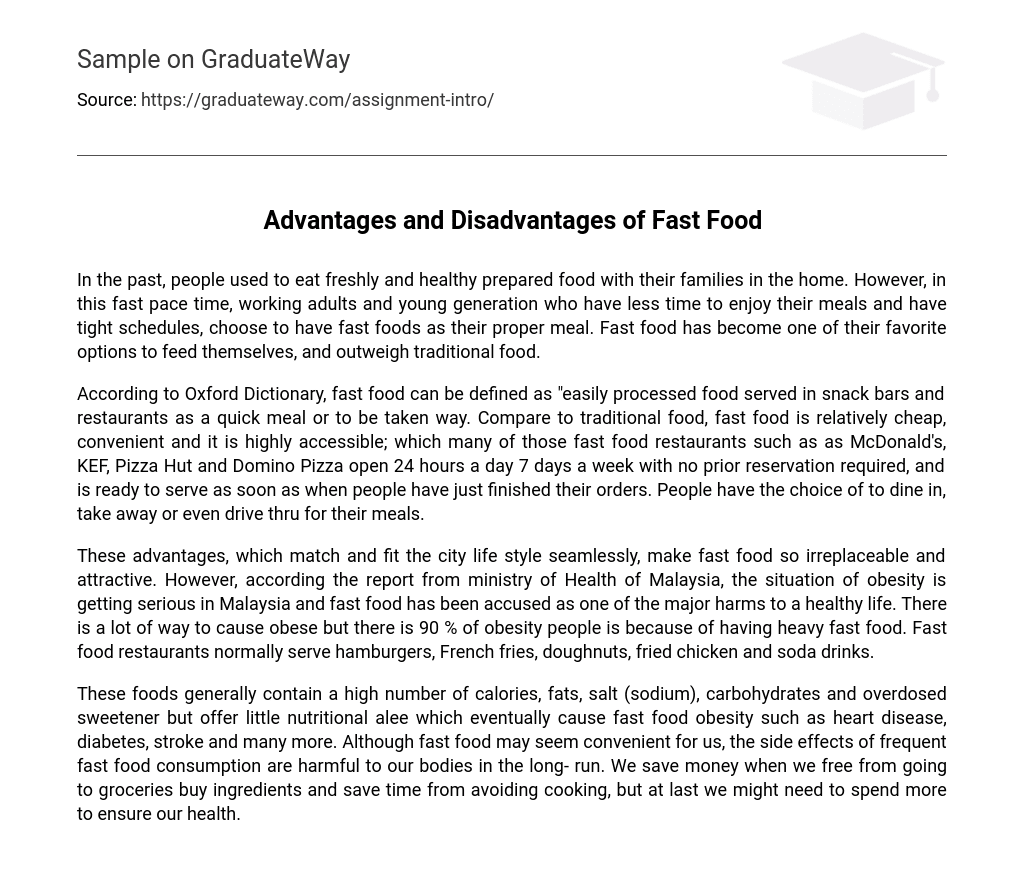Traditionally, families valued homemade meals for their freshness and nutritional content. However, in today’s fast-paced society, both busy adults and the younger generation, with their hectic schedules, choose fast food as their primary source of sustenance. Fast food has surpassed traditional options to become their favored choice.
The Oxford Dictionary defines fast food as easily processed food that is served in snack bars and restaurants for a quick meal or takeaway. Fast food is affordable, convenient, and readily available compared to traditional food. Popular fast food chains like McDonald’s, KFC, Pizza Hut, and Domino’s Pizza are open 24/7 without requiring reservations. These establishments promptly serve customers once they have placed their orders. Customers can choose to dine in the restaurant, take their meals to go, or use the drive-thru option.
The Ministry of Health of Malaysia reports that obesity in the country is becoming increasingly severe. Fast food is acknowledged as a major factor causing this unhealthy condition. Despite its convenience and popularity, 90% of obese people in Malaysia blame their weight problems on consuming high-calorie fast food items like hamburgers, French fries, doughnuts, fried chicken, and soda drinks.
Fast foods are known for their high levels of calories, fats, sodium, carbohydrates, and excessive sweeteners without offering much nutritional value. As a result, this can lead to health problems such as heart disease, diabetes, stroke, and other conditions related to obesity. Even though fast food may be convenient in the short term, regularly consuming it can have negative effects on our long-term health. While we may save money by not buying groceries or saving time by avoiding cooking initially, ultimately we might end up spending more to maintain our overall well-being.





